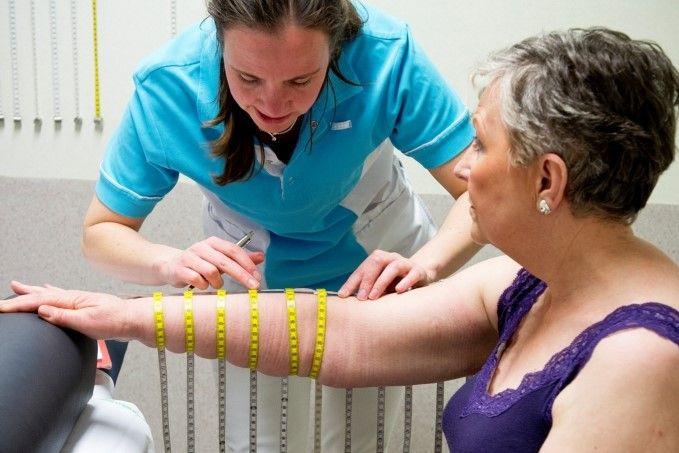A network of lymphatic vessels
The lymphatic system consists of a network of lymphatic vessels, which drain fluid (lymph) from bodily tissues to the blood vessels. Problems in the lymphatic system are linked to various diseases, including lymphoedema, which leads to swelling of certain parts of the body because fluid cannot be discharged correctly. Prof. Peter Carmeliet’s group (VIB-KU Leuven) discovered previously that the acetyl-CoA molecule is vital for the regulation and growth of the lymphatic vessels. Normally the production of this molecule depends upon the presence of substances such as glucose, fatty acids and acetate. However, acetyl-CoA can also be produced with ketones.
During the study the researchers discovered that more acetyl-CoA was available if ketones were provided, which resulted in improved growth of lymphatic vessels and better functioning of the lymphatic system in lymph related diseases. The research has consequently revealed a completely new food/diet based treatment strategy, which stimulates the formation of new lymphatic vessels and the discharge of excess fluid in lymphoedema.
Keto diet for mice and human cells
Researchers studied the effects of ketones on the lymphatic systems of mice and human cells. Initially they blocked the conversion of ketones in acetyl-CoA in human lymphatic cells. The lymph cells appeared to be growing more slowly and not spreading as much. The scientists then added ketones to the cells, and the opposite happened: the cells grew and spread more effectively.
To find out how lymph cells react in living creatures the researchers put mice on a ‘keto diet’. Dr. Melissa García-Caballero, post doctoral researcher (VIB-KU Leuven), provided the following details: “We put adult mice on a diet containing a lot of fat and few carbohydrates or ketone supplements, which led to an increase in the number of ketones in the lymphatic system. This resulted in increased growth and repair of the lymphatic system in mice suffering from lymphoedema. The ketogenic diet improved the functioning of the lymphatic system and reduced the build up of fluid in the tails of the mice.”
It is not advisable to try to implement this ketogenic diet without support from an experienced dietician or doctorDr. Sarah Thomis - vascular surgeon
Potential strategy to treat lymphoedema and improve recovery from cancer
Lymphoedema can occur of its own accord or often as a result of complications following cancer treatment. Approximately one sixth of patients who received surgical treatment for breast cancer, melanoma or other forms of cancer associated with the removal of lymph nodes or radiation therapy, developed so-called ‘secondary’ lymphoedema.
Prof. Peter Carmeliet (VIB-KU Leuven) explained how these new findings might help patients. “These fascinating results suggest that a keto diet could offer a new treatment option to stimulate the formation of lymphatic vessels in, for example, lymphoedema. At this point in time lymphoedema cannot yet be cured and no appropriate medication is available. The symptoms can only be controlled with physical therapy. Our innovative and significant discovery has already attracted attention from physicians. This enabled us to initiate a clinical phase II study to test a keto diet in lymphoedema patients. This is the first test treating lymphoedema with ‘diet therapy’ and it may well prove to be a milestone as a new therapy for this disorder.”
Dr. Sarah Thomis (UZ Leuven) coordinates the clinical study: “Together with our dietician we have developed a diet pattern that not only results in a high production of ketones, but is also easy to maintain. It consists of more than 90% fat, with very low levels of carbohydrates and proteins, which mimics the metabolic effects of a fast. Due to the fact that there may be side effects, it is not advisable to try to implement this ketogenic diet without support from an experienced dietician or doctor.”
Following the highly promising results Professor Carmeliet recorded in mice and human cells, we hope to also observe positive effects in our patientsDr. Sarah Thomis - vascular surgeon
The clinical team is still trying to recruit more participants. “We are currently recruiting patients who have developed secondary lymphoedema in the arms following breast cancer treatment. They will have to follow the keto diet for 24 weeks and then switch to a specially adapted diet. During the treatment we will measure changes in the volume of the oedema and the transport of lymphatic fluid. Following the highly promising results Professor Carmeliet recorded in mice and human cells, we hope to also observe positive effects in our patients,” concluded Dr. Thomis.
